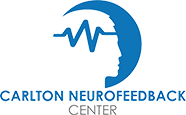Getting a poor night’s sleep can wreak havoc in so many ways. It can be hard to concentrate and to remember simple things, such as which grocery item to pick up at the store. If you only got a few hours, not the 7-9 hours recommended, you could feel tired during the day, foggy, confused, and even grouchy. If you’re having ongoing problems sleeping, staying asleep, waking up during the night, or waking up too early, you may have chronic insomnia. The National Sleep Foundation describes chronic insomnia as a condition with three or more nights of insufficient sleep over three months. If you are looking for help without the use of medications, take advantage of these tips to restore your slumber.
Choose Food and Drinks Wisely
If your body is sensitive to caffeine, you might consider avoiding tea, coffee, or other caffeinated drinks after 3 pm in the afternoon to see if it helps with your sleep. You might also consider consuming lighter meals in the early evening to help your digestion so tummy troubles do not add to the problem. While some might indulge in a beer or glass of wine to unwind, the sedative effects of alcohol are temporary. As your body processes the alcohol, it can trigger internal processes that can make you more alert. Furthermore, limiting your consumption of liquids right before bed will help you avoid waking up to use the bathroom in the middle of the night.
Avoid Daytime Napping
While it may seem like a good idea, try eliminating daytime naps longer than 30 minutes. A short power nap may help now and again, but napping a lot during the day will make it much harder to get to sleep at night. If you have ever experienced jetlag traveling across time zones, it is common for travelers to try to stay awake as long as possible that first night to try to get back on a regular sleep-wake schedule.
Relaxation and Exercise
If your sleeplessness is partly caused by stress and anxiety, it can be particularly exhausting. You may not feel like exercising, yet nearly any form of exercise can be a good way to let off steam. Low-impact activities like swimming, yoga, or walking with friends can be therapeutic. A hike on the weekend, a bike ride, or an occasional jog can also feel good. Finding ways to relax throughout your day will also help you create balance and a sense of calm. Setting aside time to visit with a friend, journaling, doodling or Zentangle, arts and crafts, reading, and music are just a few things you can do. Pick your favorite way to unwind and take care of yourself. You’ll find that it will reduce stress and anxiety and translate to sleep better.
Set a Sleep Schedule
Practicing good sleep hygiene will help get you in the habit of getting your body ready for sleep. If you stay up too late by accident, answering emails, doing household chores, or watching a late show, set an evening alarm to get on a predictable schedule. Make it a habit to wind down, setting aside tablets and cell phones. If your mind is racing, try journaling or turn on soft music or natural sounds. Make sure your bedding is in good shape so you aren’t fighting for the covers and that your mattress and pillow are positioned so they are keeping you comfortable.
Retrain Your Brain
Sometimes, you may have tried everything to get more sleep and are at the end of your rope. Neurofeedback is a non-invasive, reliable method to get your brain back in the habit of staying more organized and balanced. After a brain map is ordered, we use training protocols that fit your symptoms. Your brain is taught to transition better between sleeping and wakefulness, which will help you get back to sleep and stay asleep. Easy and relaxing, the 30-minute neurofeedback sessions consist of watching a video with special glasses and headphones. A specialized computer program monitors your brain waves and will train your brain to work more efficiently. One of the best parts about it is that the effects are permanent and do not require medicine of any kind. Your brain will build new neural pathways so you can finally get the rest you need.
We Are Here for You
Contact Dr. Ed Carlton, DC, BCN, today for a free consultation in Manassas, Virginia, to find out if neurofeedback therapy can help with the insomnia symptoms you are experiencing. Find out how neurofeedback works and what other patients told us about its positive impact on their lives.


